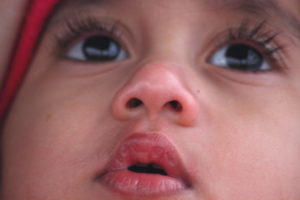Infants More Likely to Survive in 40 Countries Other Than U.S.
The World Health Organization reported that babies born in the U.S. are more likely to die in their first month of life than are babies born in 40 other countries, including South Korea, Cuba, Malaysia, Lithuania, Poland and Israel. (more)
The World Health Organization reported that babies born in the U.S. are more likely to die in their first month of life than are babies born in 40 other countries, including South Korea, Cuba, Malaysia, Lithuania, Poland and Israel.
While the average number of infant deaths in the U.S. is down by 26 percent over the last 20 years, other countries made more progress, according to the WHO report released Tuesday. The U.S., ranked No. 28 in the early 1990s, is now No. 41, tied with Qatar, Croatia and the United Arab Emirates.
Considering that infant mortality rates remain a common indicator used by health officials and economists to determine a country’s overall health and development, the U.S. is left to face questions about why its ranking has sunk so low. –BF
Your support matters…MSNBC:
One of the bigger challenges in the U.S. is complications from preterm birth, [said study researcher Joy Lawn of the Save the Children Foundation]. The U.S. rate of preterm birth is double that of countries in Europe and Northern Africa, she said. Babies who are born preterm need extra care that is often expensive. While there are few things that can reduce preterm birth, she noted that disadvantaged people in the United States may be less likely to receive proper care for preterm infants.
Still, the toll of neonatal deaths is much worse in other countries. In Afghanistan, one in 19 babies dies in the first month of life (53 per 1,000 births). Five countries account for more than half of the world’s newborn deaths: India, Nigeria, Pakistan, China and Democratic Republic of Congo. India has the most newborn deaths, with 900,000 per year, the researchers said.
If progress is not made to reduce the number of newborn deaths, the portion of child deaths that occur in the neonatal period is likely to increase in the future, the researchers said.
Independent journalism is under threat and overshadowed by heavily funded mainstream media.
You can help level the playing field. Become a member.
Your tax-deductible contribution keeps us digging beneath the headlines to give you thought-provoking, investigative reporting and analysis that unearths what's really happening- without compromise.
Give today to support our courageous, independent journalists.





You need to be a supporter to comment.
There are currently no responses to this article.
Be the first to respond.